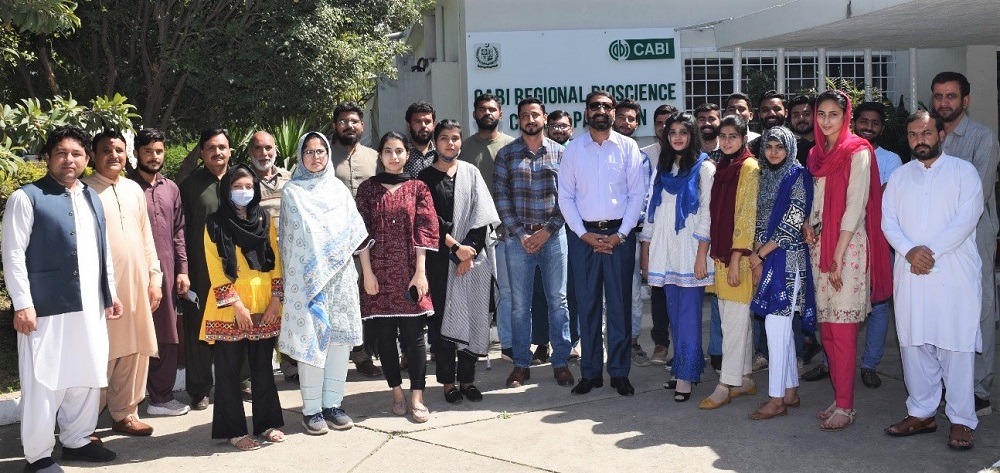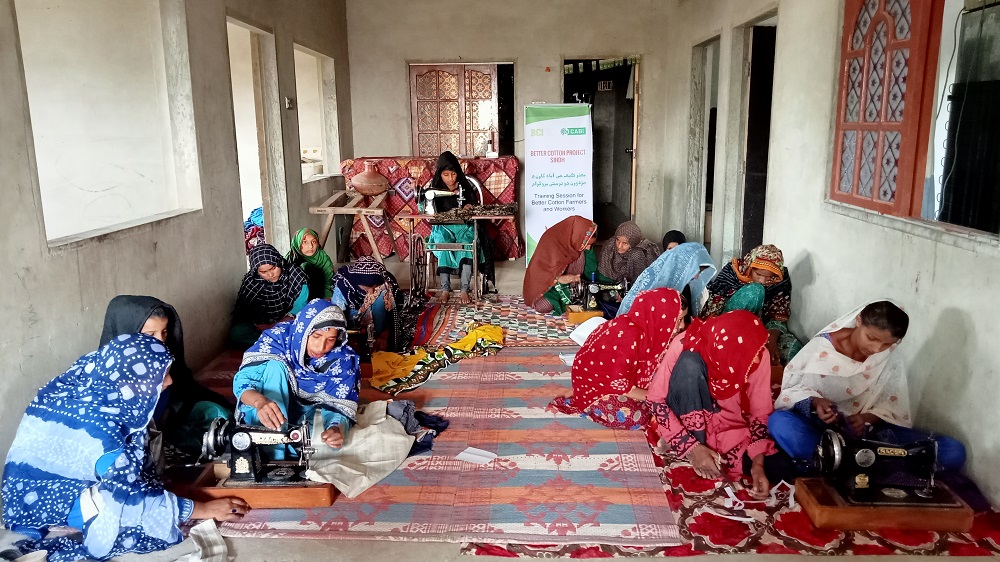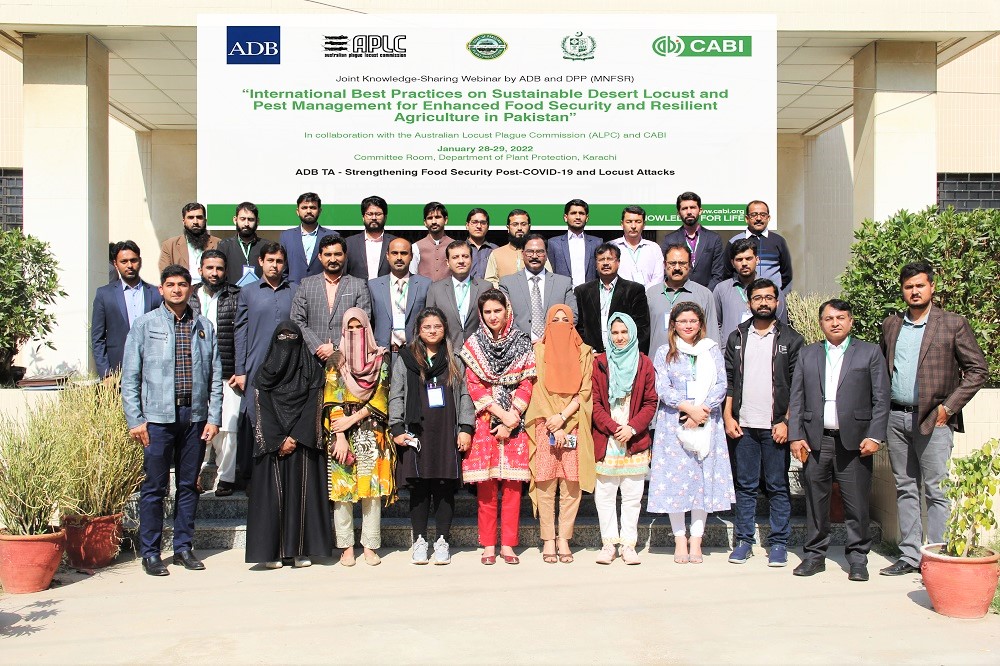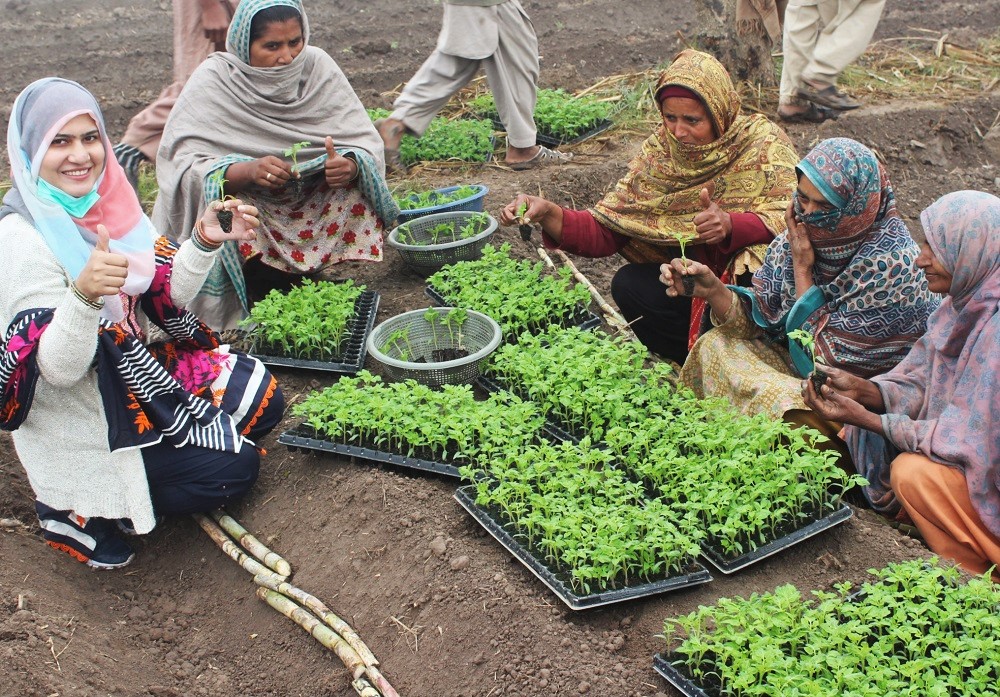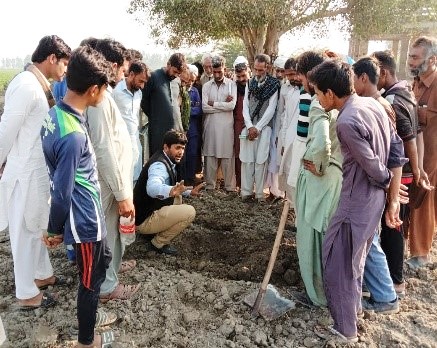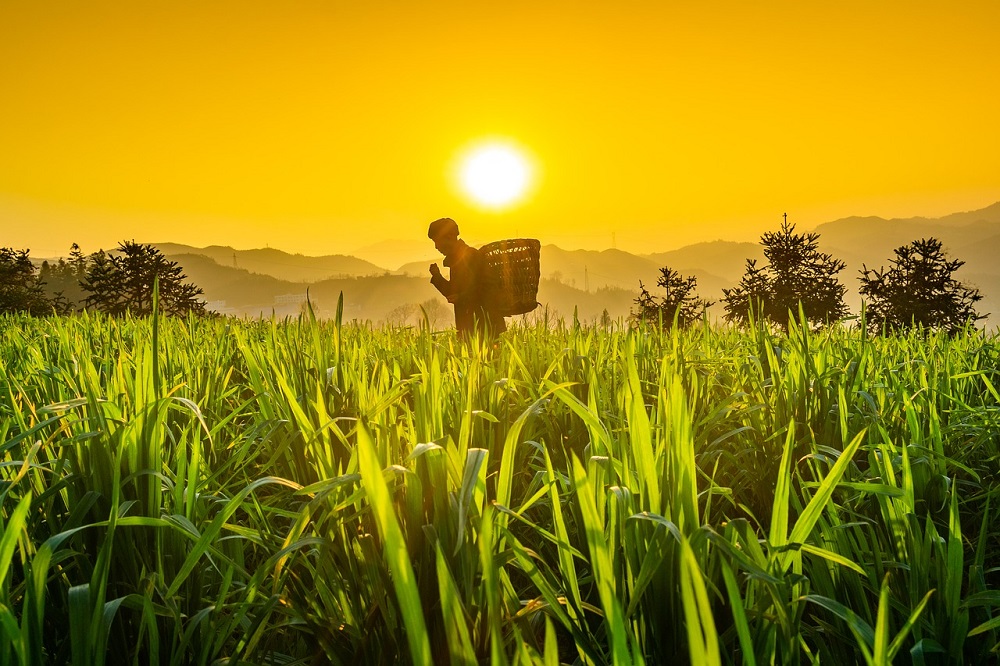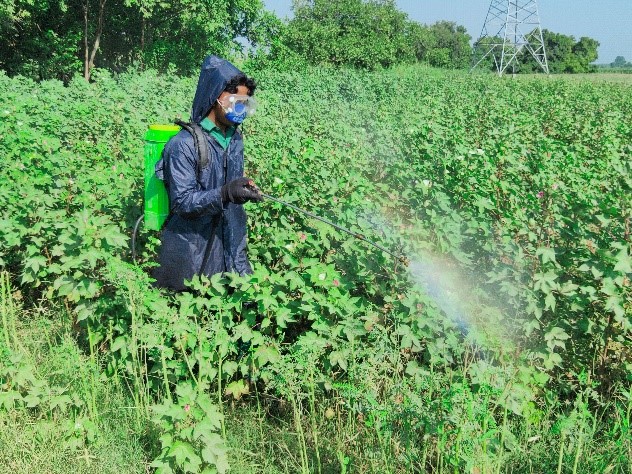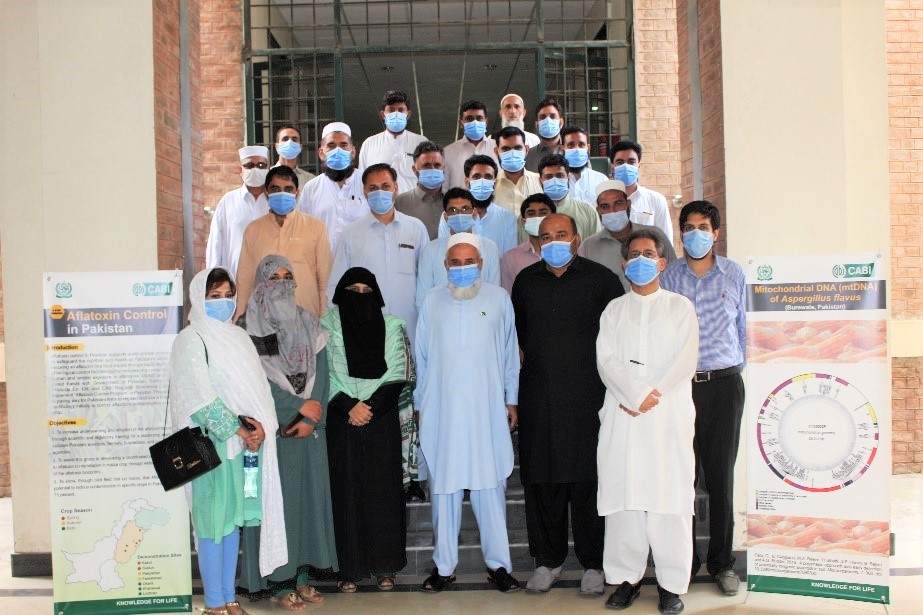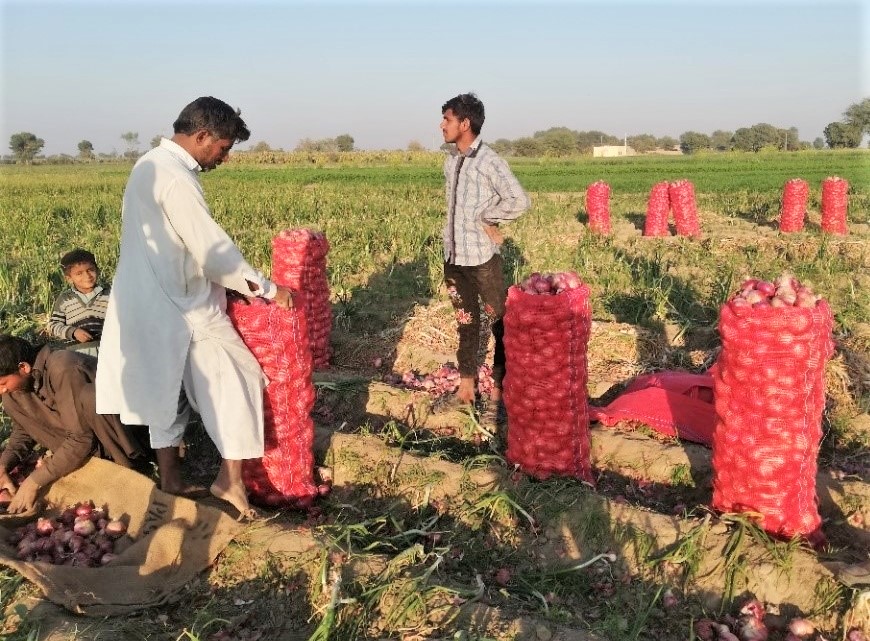CABI Blog
Tag: Pakistan
You are here: CABI Blog
CABI in Pakistan welcomes students from country’s leading agricultural universities for internship opportunity
April 19, 2022
Saqib Ali, Umair Safdar
2 comments
CABI in Pakistan has welcomed Bachelor’s and Master’s degree students from the country’s leading agricultural universities as part of an internship programme which provides the opportunity to sample projects and activities at the regional centre in Rawalpindi.
Taking steps towards female empowerment through Better Cotton Initiative in Pakistan
March 8, 2022
Noor Nabi Bhutto
2 comments
CABI’s centre in Pakistan is dedicated to helping improve the empowerment of female cotton farm workers as part of its remit under the Better Cotton Initiative (BCI) which is tasked with trying to avert annual cotton crop losses of around $350m.
High-level webinar addresses challenge of desert locust and food security in Pakistan
February 22, 2022
Amir H Malik, Kazam Ali, Muhammad Tariq Khan
No Comments
A high-level two-day joint-knowledge sharing webinar has been held at the Department of Plant Protection (DPP) in Karachi, Pakistan, to address international best practices and sustainable ways of fighting desert locust and other crop pests to help ensure the country’s food security.
Repelling poverty through tomato nursery seedling enterprise
February 16, 2022
Wayne Coles
No Comments
Story of change: A small group of women from Baili Janobi and Hajiwah villages in Muzaffargarh, Pakistan, transform from being labourers to successful tomato seedling growers.
CABI introduces advance potato production technologies in Punjab, Pakistan
February 14, 2022
Maila al Saba Shah, Umair Safdar, Yasar Saleem Khan
No Comments
CABI is transforming the fortunes of small-scale potato farmers by introducing advance potato production technology thanks to the technical support of Wageningen University & Research, Netherlands (WUR) experts and financial assistance provided by the Netherlands Enterprise Agency (RVO).
‘Sowing the seed’ for organic produce in Pakistan
January 5, 2022
Habat Ullah Asad
1 comment
CABI, under the organic agriculture project ‘Building the Policy Ecosystem for Organic Production Landscape in Balochistan, Pakistan,’ is initiating its efforts to support regenerative agriculture to mitigate climate change threats and to strengthen the local agriculture industry to compete with international markets.
Virtual training workshop on ‘Biopesticides and their Future Prospective for Pakistan’
December 16, 2021
Babar Bajwa, Sabyan Faris Honey
No Comments
CABI’s centre in Pakistan, along with United States Department of Agriculture (USDA) through the financial assistance of United States Agency for International Development (USAID) is currently involved in implementation of a program ‘Regulatory Harmonization in Pakistan for MRLs and Biopesticides’ with the objective to detect and prioritize high-risk pesticides related to increased Maximum Residue Limits…
Invasive species management – a policy tool for integrated climate adaptation
November 1, 2021
Jonathan Casey
No Comments
The UK is hosting the 26th UN Climate Change Conference of the Parties (COP26) in Glasgow from 31 October to 12 November 2021. This is the first in a series of four blogs by Jonathan Casey, Climate Change Manager at CABI, in support of CABI’s involvement at the event.
Aflatoxin risks highlighted to extension staff in Pakistan’s Khyber Pakhtunkhwa province
October 7, 2021
Babar Bajwa, Sabyan Faris Honey
No Comments
Pakistan produces many dry fruits such as almonds, walnuts, raisins, pine nuts and pistachios from which Khyber Pakhtunkhwa province has the major market share in production of dried fruits. These dried fruits are exported and consumed in large quantities worldwide during the winter seasons.
Enabling the disadvantaged: ACIAR vegetable value chain project helps small onion farmers in Tando Allahyar, Sindh, earn higher profits
August 19, 2021
Azeem Haider Naqvi, Habat Ullah Asad, Muhammad Asif
No Comments
Onion is one of the major vegetable crops in Pakistan and most of its producers are smallholder farmers. Due to smaller land holding, traditional farming practices and prevailing marketing system, they are unable to received better price for their produce and cannot uplift their living standards. The current marketing system prefers volume over the quality…
Subscribe to blog
DISCLAIMER
Views expressed in contributions do not necessarily reflect official CABI positions.
Archives
Categories
- Agriculture and International Development
- Veterinary and Animal Sciences
- Climate change and biodiversity
- Publishing
- Value chains and trade
- Crop health
- Environmental Sciences
- Human Sciences
- Tourism, Hospitality and Leisure
- Food and nutrition security
- Plant Sciences
- Gender and youth
- Digital development
- Development communication and extension
- Economic development
- Invasive species
- CABI Bioservices
- One Health

